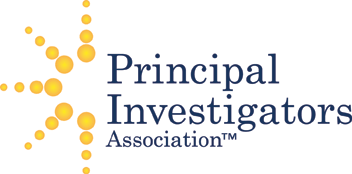Direct From NIH Seminar in Weston, Fla.: 11 Grant Tips From Agency Insiders
“How do I get the money?” is one of the top questions researchers ask NIH, according to attendee reactions. And this is one of the questions NIH addressed during its Regional Seminar on Program Funding and Grants Administration in Weston, Fla., on June 22-24.
To get your share of the funding available, NIH officials offered the following advice during the event’s multiple sessions:
- Start with your idea — It should align with an Institute or Center’s mission and have high impact on your field.
- Build your team — Seek advice from your colleagues and mentor to choose the best collaborators and trainees.
- Know how to assemble and submit the application — Read the funding opportunity announcement and application instructions closely. And consider your institution’s submission process, which could significantly impact your preparation timeline.
- Coordinate and respect each key team member’s role — Define your role and those others will play, including the authorized organization official and administrators.
- Understand the Scientific Review Officer’s (SRO’s) role — In addition to being your point of contact during the review process, the SRO is responsible for ensuring fair and unbiased evaluation of your application’s scientific and technical merit; providing a summary of the evaluation; and reviewing your application for completeness and conformance with IC requirements.
In addition, seminar presenters and attendees offered these helpful tips to the more than 450 attendees, many from Florida, as well as numerous other states and parts of the world:
- “We like getting calls from PIs and will be happy to get them in touch with the right program officer (PO),” according to many NIH POs attending.
- “Most experienced PIs have been awarded more than just an R01.” Although the R01 grant mechanism is NIH’s heavy-hitter for funding, there are others that may better suit your needs, such as the R03, R21 or K99/R00, among others.
- “The recession really hasn’t affected scientific research because the stimulus package, which was part of the American Recovery and Reinvestment Act, provided significant additional money to support NIH grants. And this allowed the agency to fund more science than in recent years.”
- “New or early-stage investigators have an advantage to submit an R01 rather than an R21 or R03 because reviewers give them special consideration for the R01 that they don’t receive for the R21 or R03.”
- “Career awards (Ks) provide very little research money. Instead, it is salary money to protect PIs’ time for their research.”
- “Use your NIH grant to support applications for funding from other sources, such as the Veterans Administration or private foundations.” Once these other institutions see that the agency is willing to fund you, they may be more likely to consider you a good investment.
These are just a few of the insights offered during the seminar. Look for more details in upcoming Research Funding eAlerts and issues of NIH & NSF Funding Advisor. If you are not already on the mailing list for this free weekly eAlert, register athttp://www.principalinvestigators.org/research-funding-ealert/
This eAlert and its publisher and sponsor are independent and have no connection with NIH and are not endorsed by the agency.
Comments (0) | Read More...




